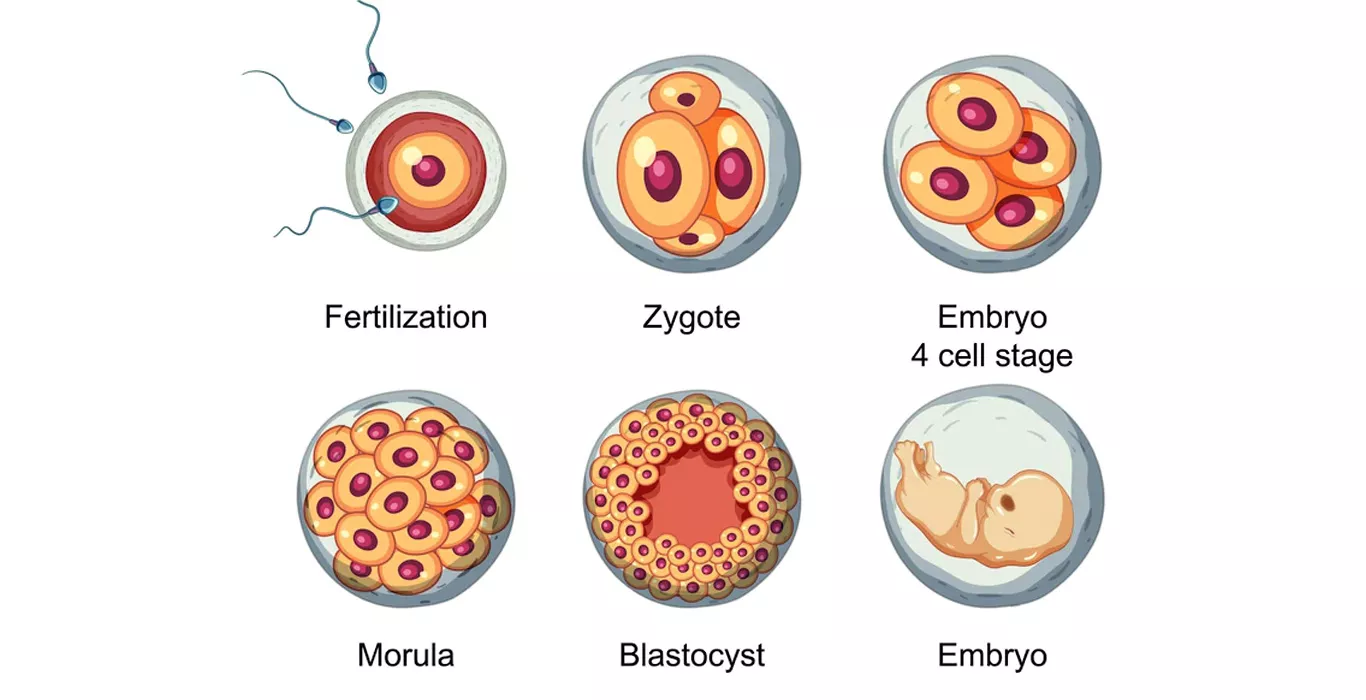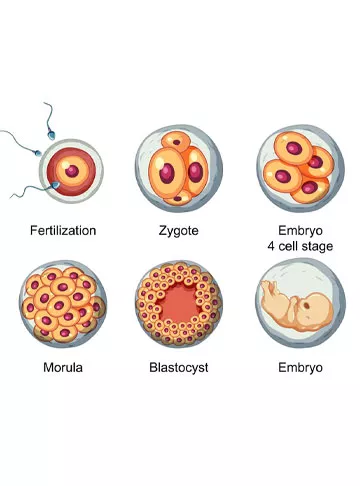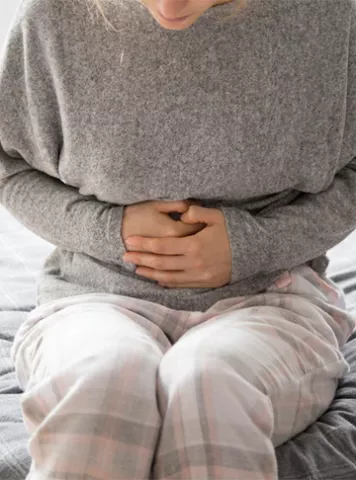IVF SUCCESS RATE IN INDIA
IVF success rates in India falls between 30-35 per cent, as calculated by the Obstetrics and Gynaecology department under the guidance of Dr. Alka Kriplani of one of the prominent hospitals of India, situated in New Delhi, known as All India Institute of Medical Sciences (IMS). During a good run of the treatment, the success rates tend to increase up to 40%. The resulting calculations of success rates by (IMS) are highly comparable with many other nations as the number being quite high for women under 35 years of age.
Apart from IMS, there are many private clinics in India that are more likely to claim about their success rates being 2 to 20 times higher. They have specified the 70 – 80% success rates for women under 35 and 40 – 50% chance for over 40 years of age.
India has been greatly developing in the field of medicine and technology as well. It had been years since IVF treatment came in India and was widely accepted and adopted by couples facing infertility problems. The success rate as talked about earlier greatly varies and depends upon a wider range of factors in IVF, the age, the lifestyle, the cause of infertility and of course the most important factor “embryo”.
IVF is also known as In-vitro Fertilization is a commonly referred fertilization treatment for couples, single parents and also for a couple of the same gender who want to have a baby. This procedure is generally 6-8 weeks long procedure as first the person has to get ready mentally and physically, followed by taking medicines for egg maturation, leading towards extraction of the eggs from the ovary, eggs are then fertilized with the sperm in a laboratory and implanted back into the womb when it turns into an embryo for further developing into a baby.
Dr. Shalini Explained that, “Many of the people facing infertility in their marriage life usually get into a situation where they think that should they take up the IVF procedure or not? Will it work for them or not? This is because IVF is a time taking and costly process for treatment.” Though it is impossible to predict the exact result of the success of the treatment but definitely there are research and calculations done by the specialist to find out approximate IVF success rate by age and embryos. However, we would still suggest not to keep any false high hopes as every human body has its own reaction and working agenda towards the treatment, what may have worked for others may not work for you or vice versa.
IVF SUCCESS RATES BY AGE
One of the prominent factors that are most likely to affect the success rate of the whole IVF treatment is “age” of the woman undergoing IVF treatment. Age has prominence in women pregnancies since long, no matter is it is a natural pregnancy or an artificial pregnancy treatment. Similarly, it plays a significant role in IVF treatment as well. Although, it had been noticed, that women of lower age group, are most likely to have higher IVF success rates, whereas women of comparatively older age group, tend to face a decrease in the success rates of this treatment. We will further look into it by the age category.
IVF success rates under 35
It is said that women under 35 and especially in their 20’s have higher success rates with regards to age as this the period when they are most fertile. Women who don’t have any identified fertility issues have a 20% success rate of pregnancy but on the other hand if women are facing any kind of infertility issues like less number of eggs, genetic disease, partners infertility or same-sex relationship then they would take up IVF for which the success rates are assimilated as per the research of CDC- The Centers for Disease Control below:
- The success rates are higher in women under the age of 35 as compared to those who are above 35 undergoing the IVF treatment.
- If the woman has never ever conceived before and is under 35 then it is more likely for her that she would conceive in 32% of cases.
- If women have had a child before then there are 37 percent of chances for IVF cycle to work and result in a successful pregnancy under the age of 35.
- If a woman is in her 20’s then there are 34 percent chances for IVF cycle to work with 2 or more than two children.
Though the number seems to be comparatively low, further research shows that the IVF success rates for women in their 20’s are very likely to result in success. Approximately there are 40-43 percent chances of embryo transferring to turn out into a successful pregnancy. Also, IVF is considered as one of the costly infertility treatments and patients expect it to work in one cycle, so as to save money. As per the CDC data analysis, it has been calculated that women falling in the category of under 35 have a 52 percent chance of acquiring pregnancy by only one round of IVF.
IVF Success rates over 40
Women are not likely to conceive when over or in their 40’s, in earlier generations it was not even near possible to have a baby in the 40 or more years of age for women but with emerging new technologies and various innovations like assisted reproductive technology (ART), it is now possible for women over the age of 40 to have a baby and enjoy motherhood even they are hitting close to menopause.
As per the research done by the Centers of Disease control also known as CDC and the Society for assisted reproductive technology also known as (SART), it has been revealed that if we use fresh embryos for the treatment then IVF success rates over 40 are as follows:
- For 40 years old, there are 20 per cent chances for IVF cycle to work and 14 per cent if going for live birth.
- For 41, the chances are 15 per cent in IVF cycles and 10 per cent for live birth.
- For 42, it is 12 per cent and 7 per cent for both IVF cycle and lives birth, respectively.
- For 43 years, the number decreases to 8 per cent and there are only 3 per cent chances for a healthy delivery.
- For 44 years of age, it is a 6 percent chance of IVF resulting in pregnancy and 3 percent of a live birth chance.
- Lastly, women ageing 45 or above have only 3 per cent chances of pregnancy by an IVF treatment and only 1 per cent for the live birth.
If you want to undergo just one round of IVF cycle to acquire pregnancy at the age of 40 then the chances are of only 8 percent that you would result in getting pregnant. So, it is recommended that you should go for more than one round at least. Also, it is important to state that doesn’t presume your personal results according to this data because every human body has its own tendencies and there many other factors that play a considerable role in the success rate of this treatment.
IVF SUCCESS RATE BY NUMBER OF EMBRYOS
There are plenty of factors affecting the success rate of IVF (in-vitro fertilization) treatment but one of the most important factors which efficiently decide the success rate is an embryo, the number and the quality of the embryo. Most of the failure in the treatment occurs due to false quality embryo used in the treatment. There are techniques like PGD (Pre-implantation diagnosis) which helps the doctor to carry out the most efficient embryo for IVF Treatment. There are embryos that look efficient by outer appearance but are lacking factors needed for pregnancy but on the other hand embryos which don’t look efficient on the outer appearance are most likely to have all the efficiency required for successfully and to determine, differentiate and further select the appropriate embryo the PGD technique is used by the doctors.
Single vs. Multiple embryos
It is recommended that when carrying out IVF treatment only single embryo transfer is considered to be healthy for the pregnancy results. The most important factor for a mother is the health of the baby, so if we transfer multiple embryos the chances of having twins and multiple births increases along with which the risk factor for the baby also increase its level simultaneously. Also, the success rate for both single embryo transfer and multiple embryo transfer is more or less similar. No matter how many numbers of the embryo for IVF are used, one should not neglect the risk factor.
As per one of the studies of “fertility research and practice” it had been calculated that the success rate of “single embryo transfer” was 45% whereas for “Double embryo transfer” was 42%. This clearly shows that it is more likely to be more or less similar to each other. So single embryo, is most likely to be safe and sufficient number of embryos for IVF treatment.
Articles
2023
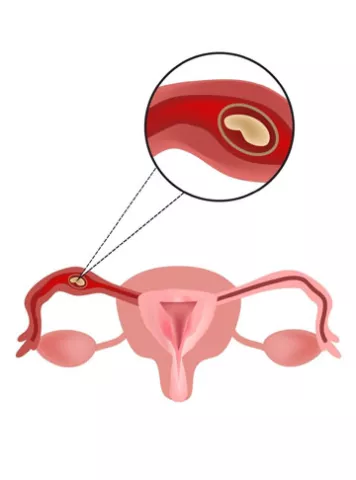

Guide to infertility treatments IVF
एक्टोपिक प्रेगनेंसी के लक्षण, कारण और इलाज
प्रेगनेंसी की खबर महिला को का�...
2023


IVF Guide to infertility treatments
टेस्ट ट्यूब बेबी का खर्च कितना आता है (What is the test tube baby cost in hindi)
पिछले कुछ वर्षों में टेस्ट ट्�...
2023


What Causes High Estrogen in Women
Estrogen is a very important hormone in a female’s body. It is especially ne...
2023


How early can a pregnancy be detected in IVF?
The happy news of pregnancy arrives after the successful completion of the fer...
2022


Guide to infertility treatments IVF
थाइरायड असंतुलन के कारण हो सकती है निःसंतानता, आईवीएफ से कैसे हो सकता है।
पिछले कुछ वर्षों में थायराइड �...
2022


पुरूष निःसंतानता का एक कारण वेरिकोसिल आधुनिक तकनीकों से संभव है पिता बनना
पुरूष निःसंतानता शब्द कुछ सा�...
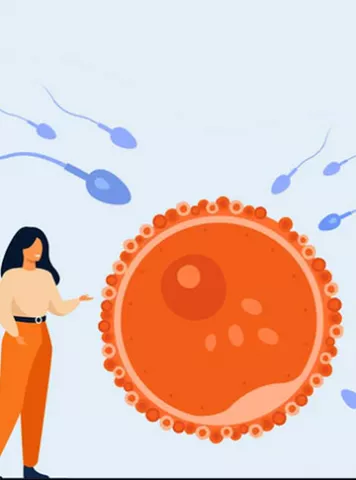

गर्भधारण के लिए कितनी होनी चाहिए शुक्राणुओं की संख्या
निःसंतानता एक ऐसी समस्या बनत�...
2022
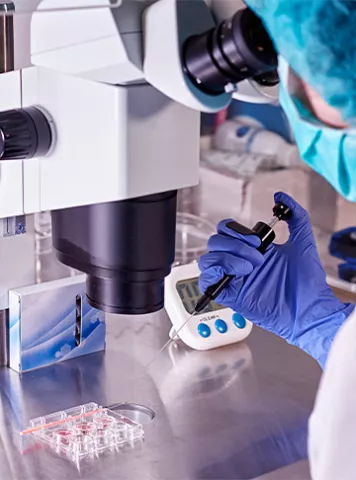

आईवीएफ क्या है (IVF Kya Hai) डिटेल में जानिए, आईवीएफ में कैसे होता है गर्भधारण
समय के साथ हमारी प्राथमिकताओ�...
Pregnancy Calculator Tools for Confident and Stress-Free Pregnancy Planning
Get quick understanding of your fertility cycle and accordingly make a schedule to track it

